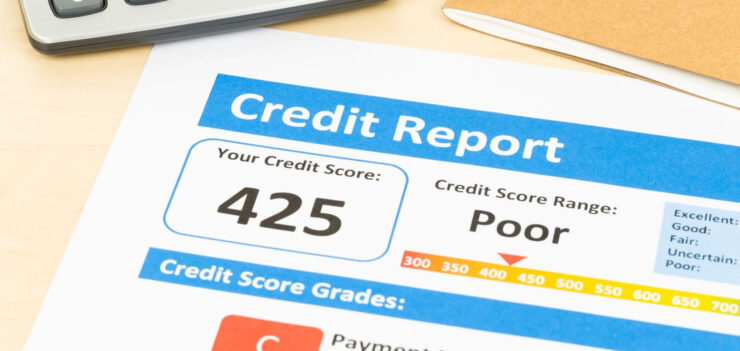The bankruptcy procedure might be expensive. However, when it’s completed, you may work to straighten out your finances and begin rebuilding your credit.
A bankruptcy may remain on your credit reports for 10 years, but your credit can rebound long before then.
If you’re thinking about bankruptcy, it’s important to understand the process and its potential consequences. Bankruptcy may be a good solution for you if you can’t pay your debts, but it’s not right for everyone.
Bankruptcy is a legal proceeding in which a person or business can seek relief from debts they cannot pay. The bankruptcy process involves filing a petition with the court, having a hearing with a judge, and receiving a discharge order from the court. There are two types of bankruptcies – Chapter 7 and Chapter 13. If you want to learn some more ways to improve your credit score you can visit this site.
Page Contents
1. Consider a secured or retail credit card

Bankruptcy has the potential to reduce your purchasing power, but it should not eliminate it. You might still be able to get certain cards.
-
Secured cards
Secured credit cards require an upfront deposit, which helps protect the lender if you can’t keep up with your payments. In exchange, you’ll receive a limit that is usually equal to the deposit. However, read the small print before applying. Some cards will not approve your application until your bankruptcy is completed.
-
Retail cards
After bankruptcy, retail cards may be useful since they have less strict requirements than other unsecured cards. However, keep in mind that many charge high-interest rates and penalty fees. Setting up monthly automatic payments and balance notifications might assist you in achieving those goals.
2. Check out credit-builder or secured loan products
If you’re not quite ready for a card, or if your score is too low to qualify for one, you might want to try a credit-builder product.
Credit-builder products are designed for people with little or no credit history. They work by depositing a set amount of money into a savings account and then providing you with a line of credit equal to the deposited amount. You can then use the line of credit to make purchases or withdraw cash.
Secured loans are products that also require an upfront deposit. However, in this case, the loan amount is typically much higher than the deposit. The secured loan aids in the rebuilding of your score by reporting your monthly payments to the credit bureaus.
3. Become an authorized user on someone else’s credit card

If you can’t obtain a credit card or a loan, joining the account of someone else who has one might be an excellent alternative.
Although bearing legal responsibility for the debt is initially not assigned to authorized users, they do receive a score for their usage. Make sure the account you choose is secure and has a good payment history.
4. Pay your bills on time and control your shopping

The best approach to improve your score is to pay your bills on time. Late payments might have a huge negative influence on your credit score. When you’re upset, many people like to go shopping. It could happen to you as well. Expending money is a method of reducing tension. However, if your financial situation isn’t stable, it’s not a good idea to do this. The last thing you want is more debt.
5. Limit How Often You Apply
Every time you apply for credit, there will be a “point” to your credit report. This implies that when lenders check your credit report to see if they can extend you credit, that check is recorded there. If a lender sees that you apply for loans frequently, they’ll be less inclined to give you more money. For example, if several companies see that you’ve applied for a loan with them in the past week, they might think you’re desperate for money and could be a risky borrower.
6. Use Credit Monitoring to Track Your Progress

Credit monitoring services are a quick and simple method to see how your credit score evolves over time. These services, which are often free, check for changes in your report, such as a paid-off account or a new account you’ve established.
Many of the finest credit monitoring services can also help you avoid identity theft and fraud. If you get an alert that a new credit card account that you don’t recall opening has been reported to your credit file, for example, you may contact the credit card company to report suspected fraud.
But why should you consider this before filing for bankruptcy?
Because you are overspending on goods, your application could be rejected. Your spending habits will be reviewed for approximately 90 days before your application is submitted. As a result, they will refuse your application if they discover that you were squandering money. This is because many people do it to commit fraud, and banks don’t want it to occur.
Conclusion
Your credit score is a three-digit number that reflects your creditworthiness. It’s important to have a good credit score if you want to borrow money at a low-interest rate since it shows lenders that you’re a responsible borrower. If your score is low, there are steps you can take to improve it.
There are a few things you can do to improve your score. One of the most effective strategies is to pay your bills on time. Late payments might have a huge negative influence on your score. When you’re upset, many people like to go shopping. It could happen to you as well. Expending money is a method of reducing tension. However, if your financial situation isn’t stable, it’s not a good idea to do this. The last thing you want is more debt. Visit retirementinvestments.com for more information about credit scores.
Another thing you can do is limit how often you apply for credit. Every time you apply for credit, there will be a “point” to your report. This implies that when lenders check your report to see if they can extend your credit, that check is recorded there. If a lender sees that you apply for loans frequently, they’ll be less inclined to give you more money.

